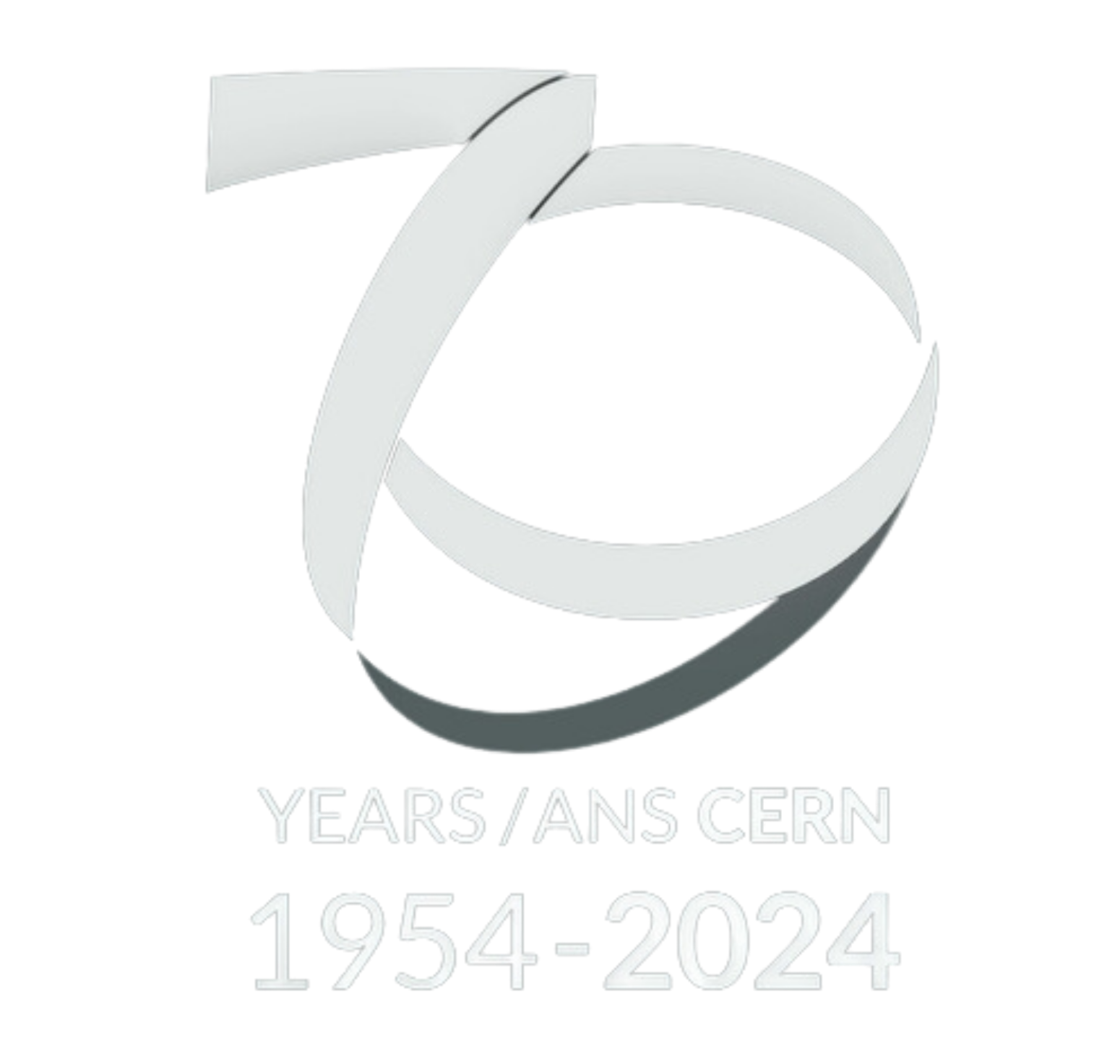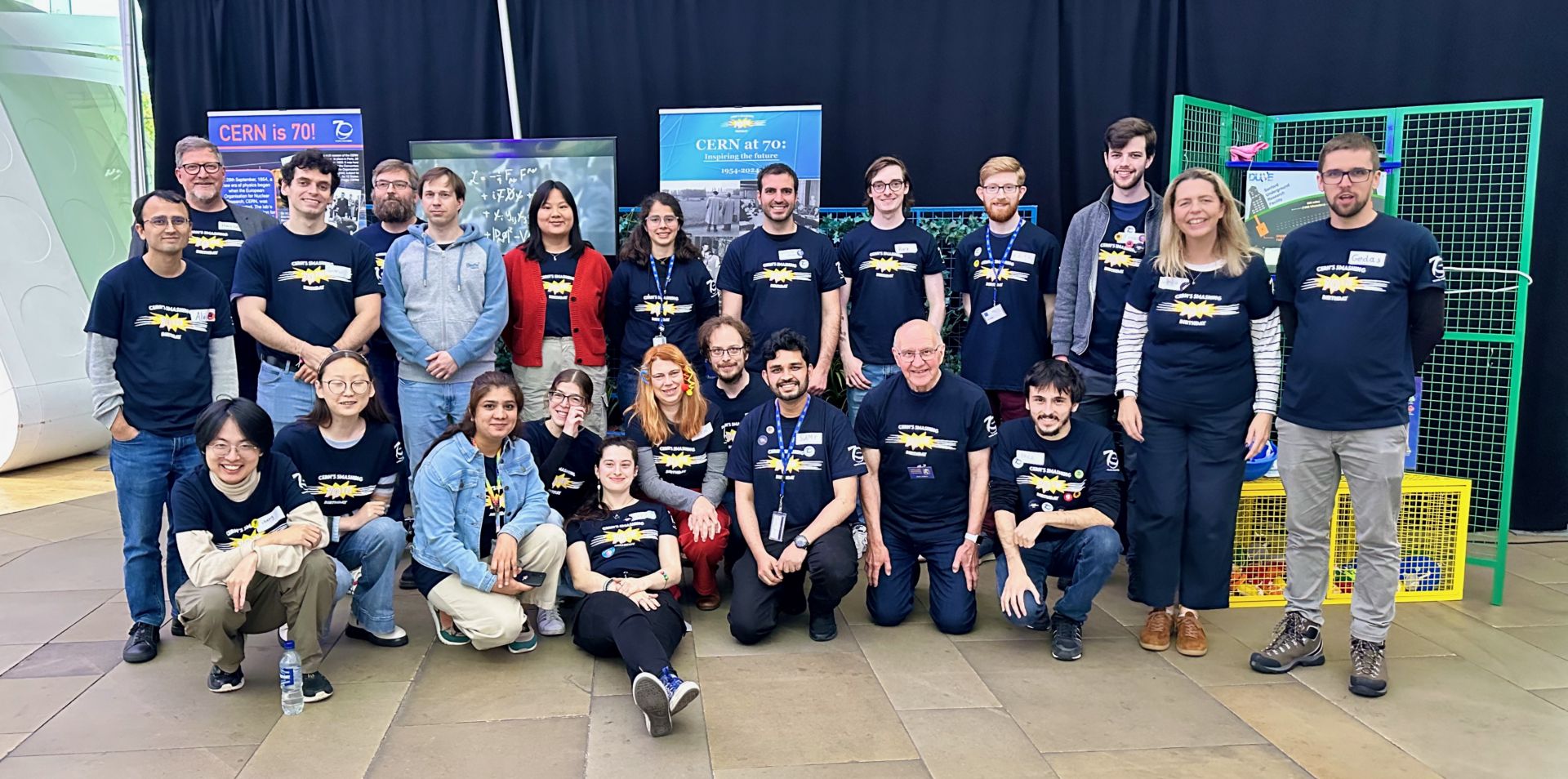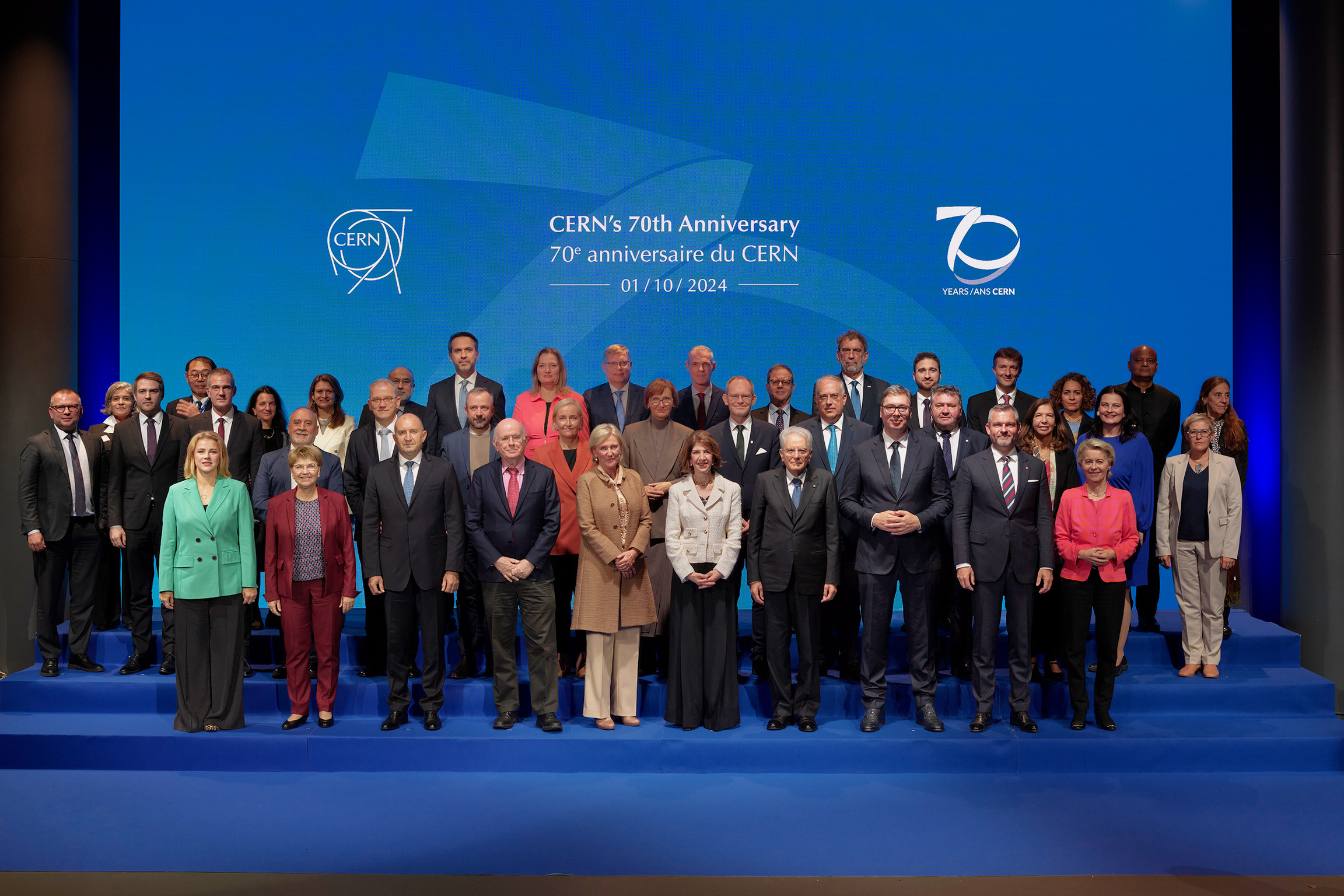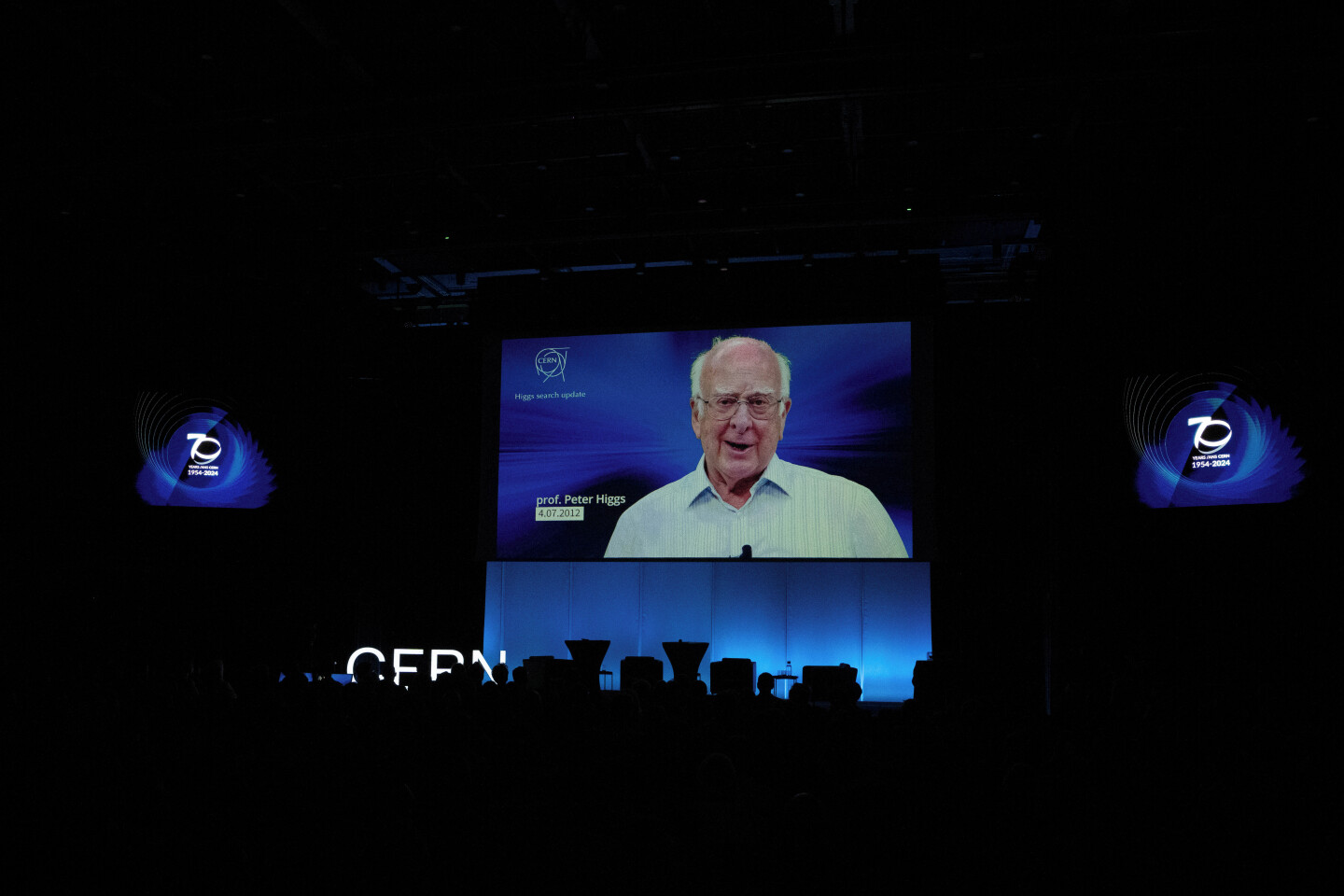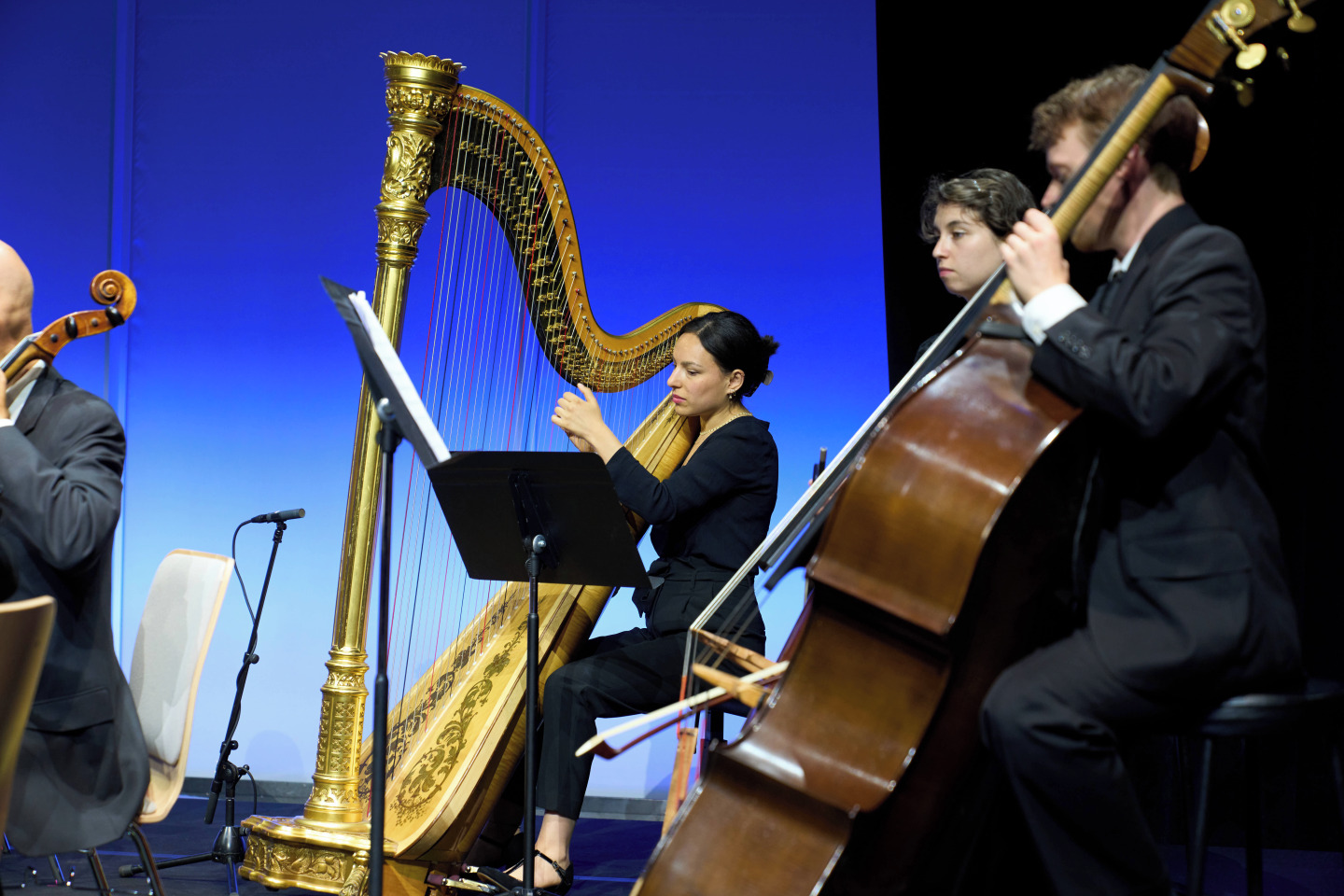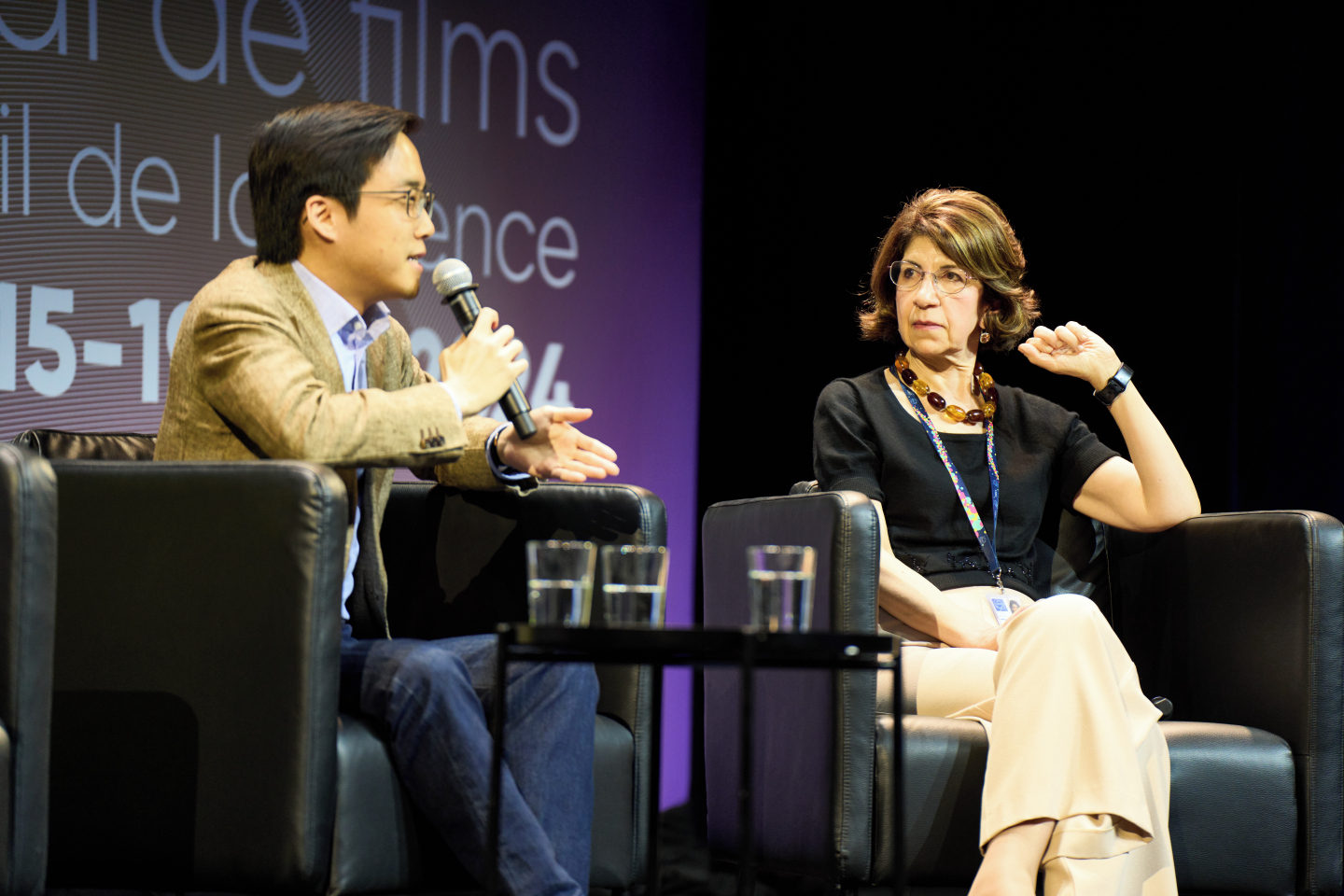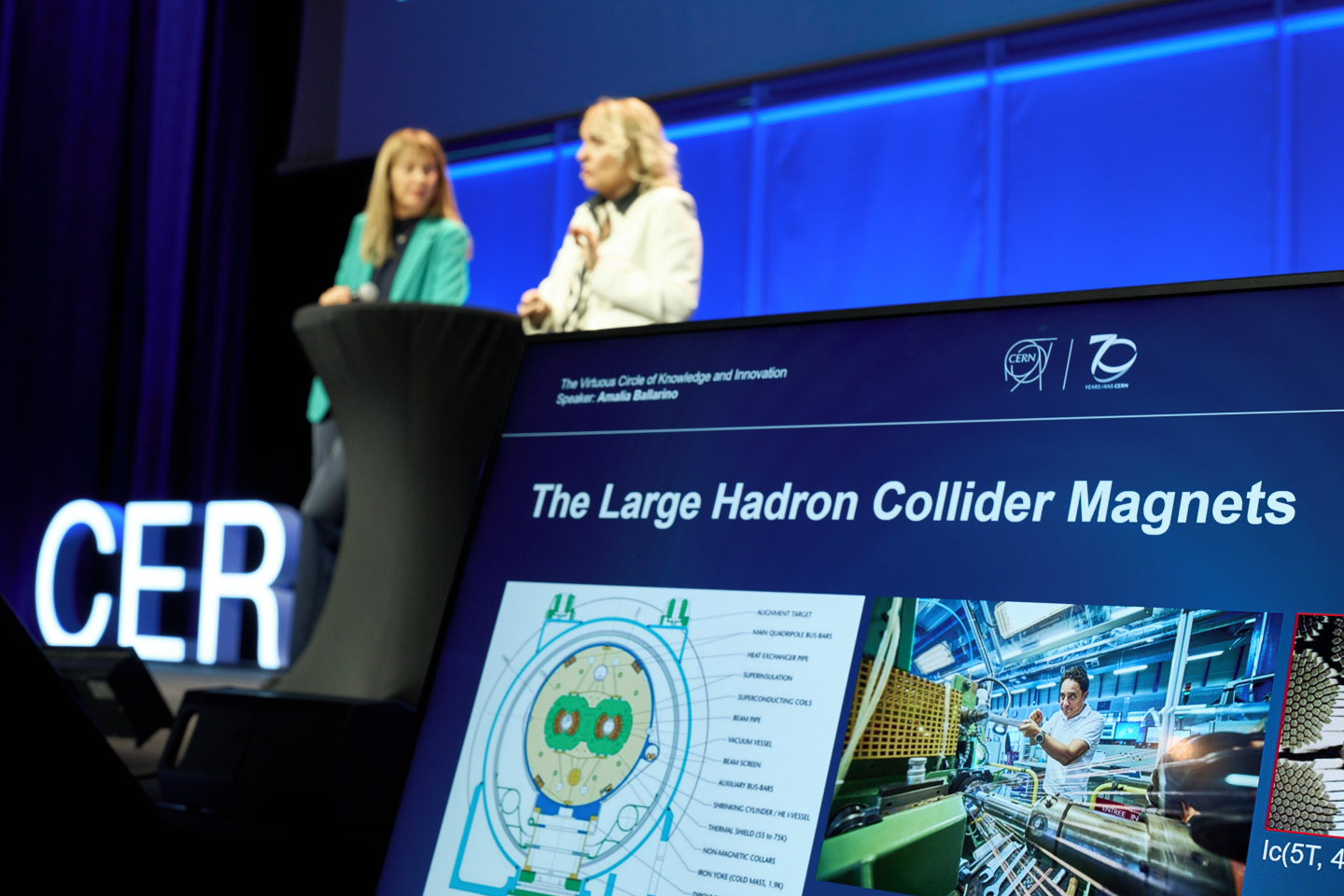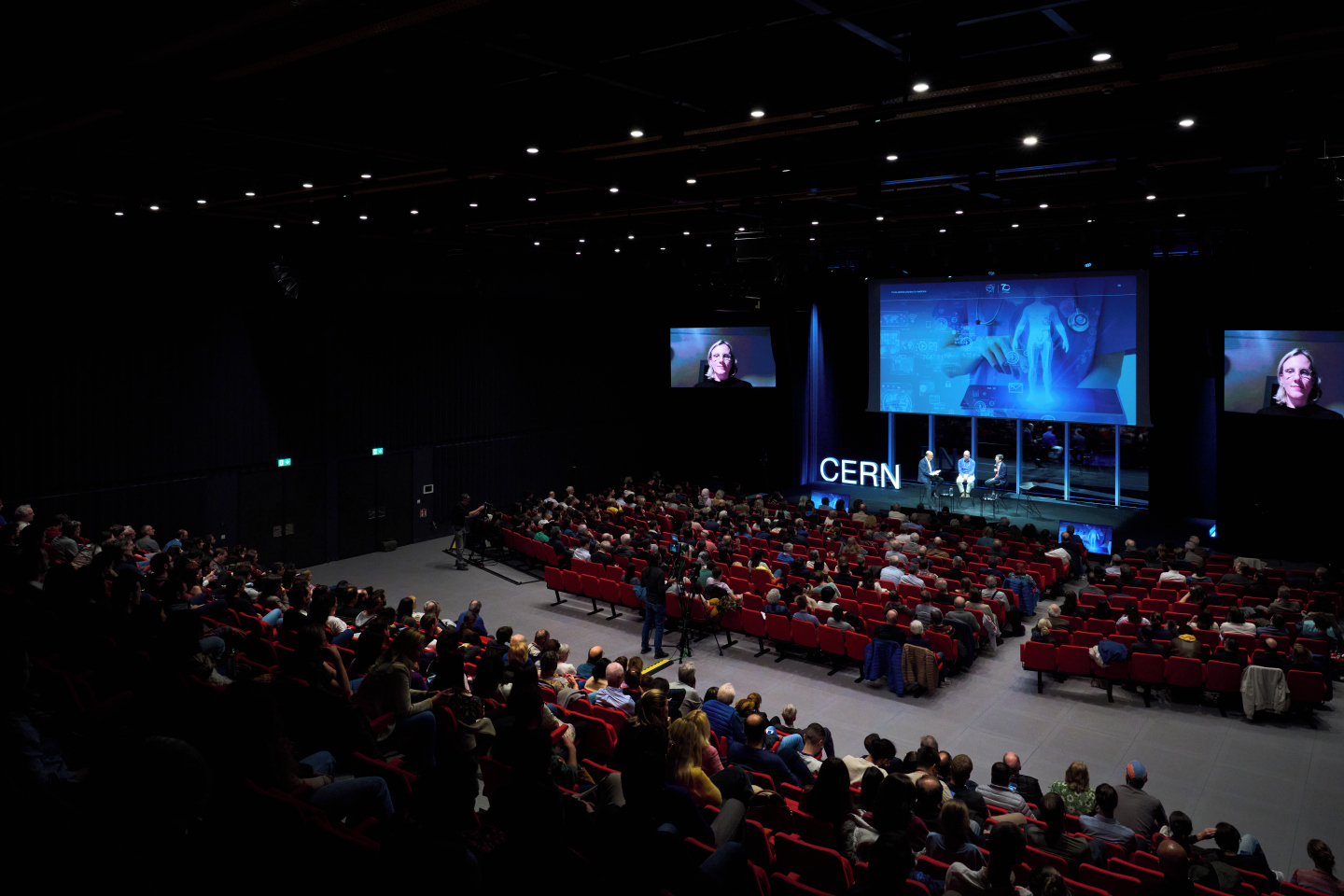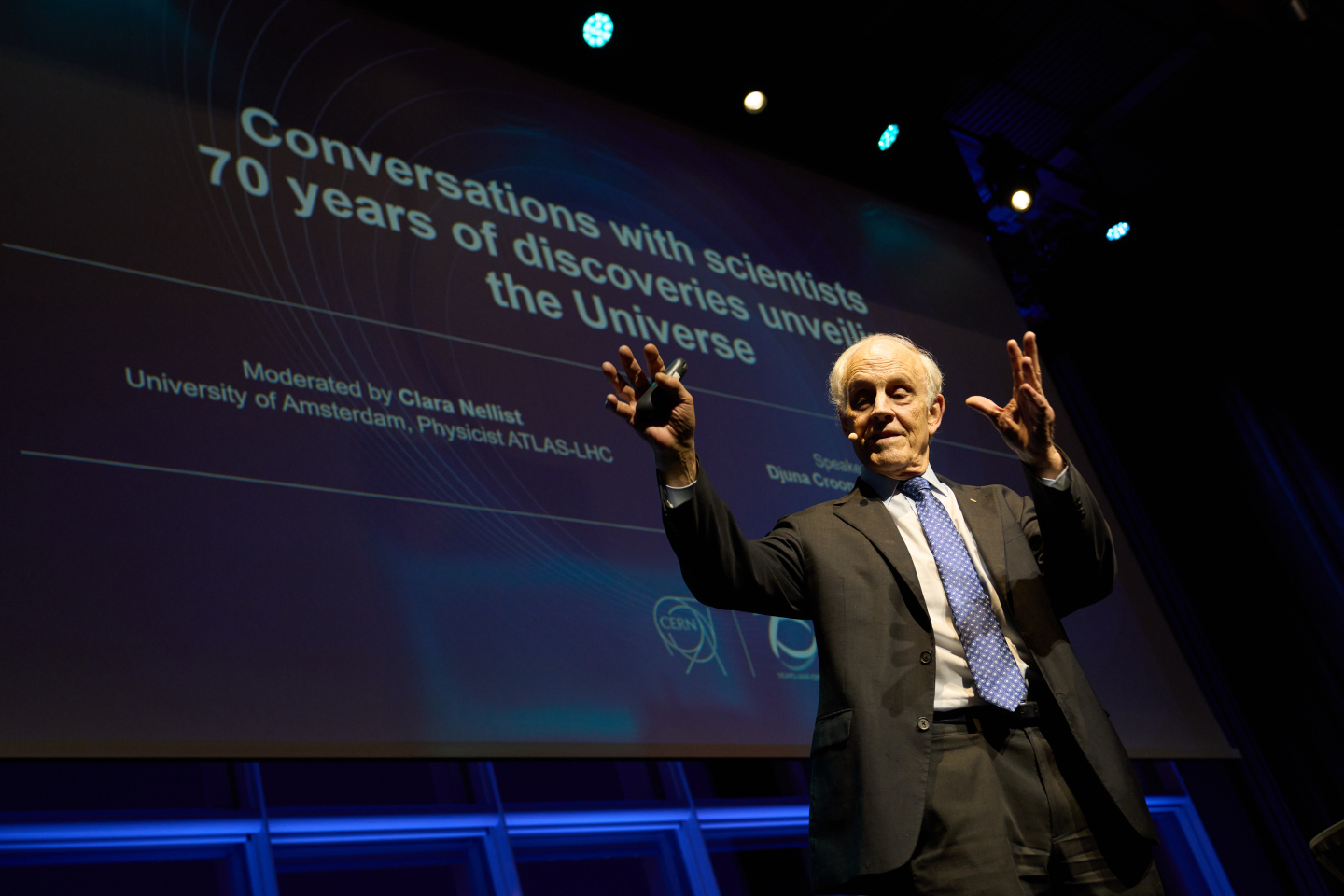On Sunday, 6 October, the Universities of Edinburgh and Glasgow hosted a celebration at Edinburgh’s science centre, Dynamic Earth, for the 70th anniversary of CERN.
Around 600 members of the public attended the event. Thirty-three physicists from the Universities of Edinburgh, Glasgow and Lancaster and Humboldt University of Berlin – who all collaborate on projects based at CERN – were on hand to explain CERN’s history, current research and future plans.
For our younger visitors, activities included colouring in the ATLAS detector, making baryon bracelets and playing the Quark Quest board game.
Visitors of all ages enjoyed learning about their particle personality – were they a shy neutrino, a boisterous boson or even a strange quark? In fact, the most common personality type was W+ – friendly, with a positive outlook!
Many visitors enjoyed looking at CERN’s detector technology, with exhibits demonstrating how it can be used to see cosmic rays, to suspend pollen grains and to measure the lifetime of muons. Other exhibits presented the Standard Model, the LHC, ProtoDUNE, the history of CERN and the technologies developed at CERN – including imaging technology, high-strength magnets, artificial intelligence and medical physics.
The message of the day was that CERN is not just for CERN scientists, but for everyone. CERN’s work over the past 70 years – the technology developed, the physics discovered and the knowledge created – is for people everywhere, and we were privileged to be able to present this to the public.
The event was led by Professor Victoria Martin from the University of Edinburgh and Professor Andy Buckley from the University of Glasgow with support from the Institute of Physics, the Universities of Edinburgh, Glasgow and Lancaster, the STFC, CERN, the Higgs Centre for Theoretical Physics and the Carla Fendi Foundation.
Additional information
The event was led by Prof Victoria Martin from Edinburgh and Prof Andy Buckley from Glasgow with support from the Institute of Physics, Universities of Edinburgh, Glasgow & Lancaster, STFC, CERN, the Higgs Centre for Theoretical Physics and the Carla Fendi Foundation.
